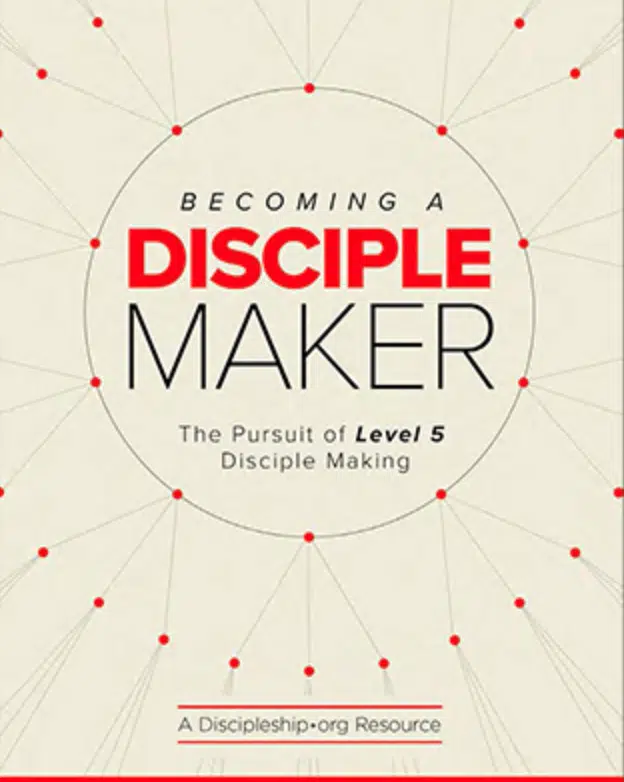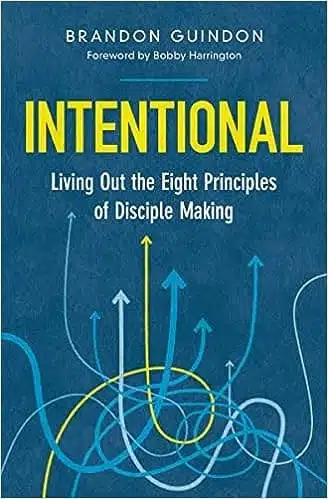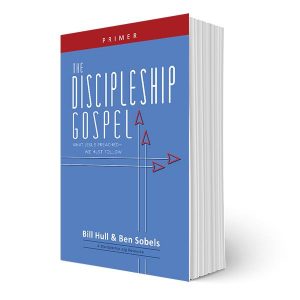THE GREATEST COMMANDMENT, PART 3: WITH ALL YOUR MIND

THINKING CHRISTIANLY
One of the major critiques of Christianity from agnostics and atheists is that we have a “blind faith,” one that leans more on superstition and myth than on any form of reasoned support or critique. This argument stems from the influence of the Enlightenment of the 17th and 18th centuries that still has an indelible influence on our Western thinking and practice today. But biblical Christianity is not some superstitious religion simply built on wishful thinking and a mythical god. It is a reasonable faith. Sure, there are many things that remain a mystery about God, but that does not mean that we should not seek Him with our mind. In fact, Jesus, quoting the Jewish Shema in Deut. 6:5, says, “Love the Lord your God with all your heart and with all your soul and with all your mind. This is the first and greatest commandment” (Matthew 22:37-38).
Since the greatest commandment, and the second that Jesus mentions to “Love your neighbor as yourself” (Lev. 19:18; Matt. 22:39), should dictate how a Christ-follower lives, we can say with confidence that how we think will determine how we live. In fact, the Apostle Paul would later appeal to the church in Colossae, “So if you have been raised with Christ, seek the things above, where Christ is, seated at the right hand of God. Set your minds on things above, not on earthly things. For you died, and your life is hidden with Christ in God. When Christ, who is your life, appears, then you also will appear with him in glory” (Col. 3:1-4 CSB). Alister McGrath, Andreas Idreos Professor of Science and Religion at the University of Oxford in his book The Passionate Intellect confirms, “The heartbeat of the Christian faith lies in the sheer intellectual delight and excitement caused by the person of Jesus Christ…Yet while the appeal of the Christian vision of Jesus of Nazareth to the baptized imagination and emotions must never be neglected or understated, we need to appreciate that there remains an intellectual core to the Christian faith.
We cannot love God without wanting to understand more about him. We are called to love God with our minds, as well as our hearts and souls. We cannot allow Christ to reign in our hearts if he does not also guide our thinking. The discipleship of the mind is just as important as any other part of the process by which we grow in our faith and commitment.”1
If we are to love the Lord our God with all our mind, then how do we actually do it? N.T. Wright, in his extensive study on the Apostle Paul, says, “Paul invented something which in hindsight can be called ‘Christian theology’ because only by giving themselves to this task—learning to think Christianly about God, about God’s people, and God’s future—can the church be sustained and energized in unity and holiness”.2 Wright is quick to point out that thinking about God, his people, and his future, is not simply an intellectual exercise, such as thinking about seismology, but is saturated in prayer and in the study of God’s word. Subsequently, if we are to think Christianly, then we must engage not only our heart and soul, but our mind as we follow after Jesus. This begins by understanding who we are as people.
Identity is a controversial and volatile issue in our culture. From sexual and gender identification to race and religion, identity is at the core of the global debate. But beyond the rhetoric, political pandering, and hate speech lies the core of the argument—our worldview. A worldview is simply how we perceive the world, whether right or wrong. It is “…the total set of beliefs that a person has about the biggest questions in life.3
A longer but more precise definition of a worldview is as follows: “A commitment, a fundamental orientation of the heart, that can be expressed as a story or in a set of presuppositions (assumptions which may be true, partially true, or entirely false) which we hold (consciously or subconsciously, consistently or inconsistently) about the basic construction of reality, and that provides the foundation on which we live move and have our being”.4 In other words, our worldview affects our thoughts, feelings, actions, commitments, relationships, and overall identity. While this is true, it is also true that the transformation of our worldview is primarily the work of our thought life.
Pastor Tim Keller identifies three different worldviews as they relate to our identity, and how they determine how we think about ourselves every day. Identity can simply be defined as the combination of a sense of self and self-worth, how we perceive ourselves. The first worldview is called the traditional identity. The key assumption in the traditional identity is that our identity is based on standards outside of yourself and living up to those standards gives us value and significance. The traditional identity is all about what you do. It is about a standard of goodness that you are trying to achieve in light of the expectations of others. You are your duties, and your self-worth depends on the honor that is bestowed on you by your community, including your family of origin, teachers, supervisors, and even your church.
Though there is a high work ethic described in Scripture (Col. 3:23; 2 Thess. 3:10-12), we must be careful not to base our worth and significance on our ability to perform. In the traditional identity, lack of self-worth comes from not meeting the external standards and expectations of others, which can lead to suffocating and devastating results in our relationships, marriages, homes, and walk with God. Paul, in Ephesians 2:8-9 (ESV) says, “For by grace you have been saved through faith. And this is not your own doing; it is the gift of God, not a result of works, so that no one may boast.”
The second worldview is called the modern identity. The key assumption in the modern identity is that our identity is based on subjective standards set by each individual and our self-expression gives us value and significance. The modern identity is not about a standard of goodness we must achieve to find our worth, but about the freedom we feel to determine our own value and significance. It says that we are to look inward to find our value, validate our existence, and reject external standards. The modern identity is simply moral relativism (whatever is true for you is true for you, whatever is true for me is true for me—no absolute truth) applied to the issue of identity. As a result, society is expected to adjust to the standards of each individual and self-worth is determined by an individual’s personal views. In the modern identity, lack of self-worth comes as a result of disagreement with a person’s views and their self-expression. Scripture condemns this kind of thinking by saying, “In those days there was no king in Israel. Everyone did what was right in his own eyes” (Judg. 21:25 ESV).
The third worldview is called the gospel identity. The key assumption in the gospel identity is that our identity is based on a standard outside of oneself, God, but living up to that standard has already been achieved in Jesus, so our value and significance are found in his free gift of grace. The gospel identity does not look outward, per se, or inward, but upward for our worth and significance. If we were created by a personal, loving God, for an eternal purpose, then neither does the individual take precedent over the community nor does the community take precedent over the individual.
What matters is not what society says about me or what I think about myself, but what God says about me. For that is how we were created, in the image of God. In Genesis 1:26-27 (ESV), God says, “Let us make man in our image, after our likeness. And let them have dominion over the fish of the sea and over the birds of the heavens and over the livestock and over all the earth and over every creeping thing that creeps on the earth.’ So God created man in his own image, in the image of God he created him; male and female he created them.” Therefore, our identity is based on being created in the imago Dei (image of God) and not in our own image or the image of others around us.
Keller confirms the gospel identity by saying, “A Christian’s identity is not achieved but received. When we ask God the Father to accept us, adopt us, unite with us, not on the basis of our performance and moral efforts but because of Christ’s, we receive a relationship with God that is a gift. It is not based on our past, present, or future attainments but on Christ’s spiritual attainments. In the Christian understanding, Jesus did not come primarily to teach or show us how to live (though he did that too) but to actually live the life we should have lived, and die in our place the death—the penalty for our moral failures—we should have died. When we rest in him alone for our salvation, he becomes a substitute and representative for us. On the cross Jesus was treated as we deserved, so that when we believe in him, we are treated as he deserves”.5
So, how then do we embrace and live out a gospel identity in a work-crazed, pluralistic culture? The Apostle Paul gives us some direction in Rom. 12:2. He says that we are no longer to …be conformed to the world, which is …a posture or attitude which may be changed at will, but to …be transformed, or to be formed by …what grows out of necessity from an inward condition, by …the renewing of your mind, or to no longer think like an unbeliever, but like one who follows Christ; one who thinks Christianly. As a result, that person will, …by testing, be able to …discern what is the will of God, what is good and acceptable and perfect. Keller again says, “So who am I? If I am a Christian, I am who I am before God. Those things God affirms are the true me; those things he prohibits are the intrusions of the foreign matter of sin and not part of the person I was made to be and the Spirit is bringing about.”
Therefore, since our identity is based in Christ who dictates our worldview, then we should strive to think Christianly. As we do, we should set our minds on things above, allowing the Holy Spirit to form and direct our thoughts toward Christ so that we might see the world as Jesus sees it, think like Jesus thinks, and then help make disciples of Jesus who do the same.
[1] Alister McGrath, The Passionate Intellect, 20-21.
[2] N.T. Wright, The Paul Debate, 10.
[3] Jonathan Morrow, Think Christianly, 69.
[4] James Sire, The Universe Next Door, 20.
[5] Timothy Keller, Making Sense of God, 136.
[6] Ibid., 141.
This post originally appeared at: The Greatest Commandment, Part 3: With All Your Mind (Thinking Christianly) — The Bonhoeffer Project
Because of the importance of intentionality in disciple making, we at Discipleship.org are going to emphasize this skill set and mindset over the next four months. Please join with us and seek to share understanding, insight, and practical tools so that you can become skilled at intentionality in relational disciple making and you can help those on your team or in your leadership group to do the same. There are four ways in which we are emphasizing intentionality to help you in the next four months.
- Discipleship.org City Tour Forums – our four City Tour Forums are designed to help you and your team both understand and develop an intentionality posture. The tour is comprised of one day, high impact forums where there will be teaching and round table discussions. Every attendee also gets a copy of Brandon Guindon’s new book, Intentional: Living Out the Eight Principles of Disciple Making.
Click the image below for more information.

Take the FREE Individual Disciple Maker Assessment – we designed this assessment with a team of national and international disciple making leaders to help each individual be able to evaluate their disciple making mindset and skill. Just by taking this assessment, you will gain an appreciation for the value of intentionality, along with a sense of how you can increase your own level of intentionality. Click the image below to take the assessment.

- Read the short FREE book, Becoming a Disciple Maker: The Pursuit of Level Five Disciple Making – Bobby wrote this short eBook with statistician Greg Wiens to help you understand the mathematical and practical impact of one person’s disciple making efforts and skills.
Click the image below to download this free eBook.

- Read Brandon Guindon’s book, Intentional: Living Out the Eight Principles of Disciple Making – Brandon wrote this Discipleship.org book and Zondervan is publishing, because the understanding and practice of disciple making is so crucial. Every attendee at each of our City Tour events (Nashville, Houston, Dallas and Raleigh), as mentioned above, will receive a FREE copy of Brandon Guindon’s book.
Click the image below to pre-order Brandon Guindon’s book from Amazon.com. Please join with us in this quest to better understand and practice intentionality. It will help us all to become more and more like Jesus, the world greatest disciple maker.

If you have enjoyed reading this, please consider joining our email list!











